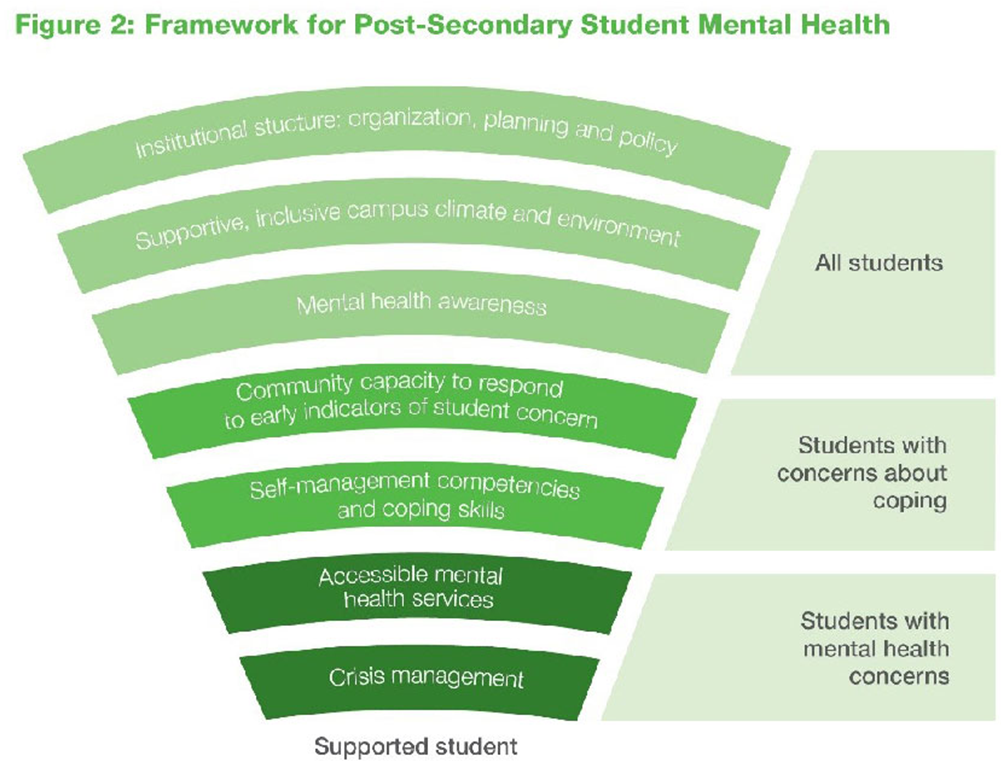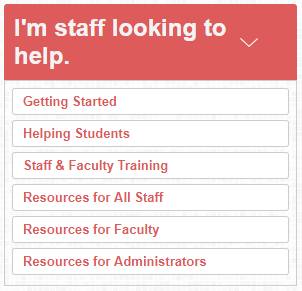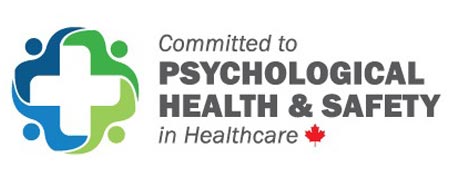Ensuring students are mentally healthy is the priority of many educators. It is well documented that college and university students are at high risk of developing mental health issues and illnesses. Half of all lifetime cases of diagnosable mental illness start by age 14 and reaches 75% by age 24 1
- Post-secondary students (PSS) are twice as likely to report mental illness symptoms and elevated distress than non-university youth. 2
- In Canada, suicide is the second leading cause of death among 15 to 24-year-olds, and accounts for almost 25% of deaths within that demographic. 3
- Mental wellbeing is a significant predictor of educational attainment. 4
Unfortunately, post-secondary institutions (PSIs) have faced challenges when attempting to prevent, identify and treat mental illnesses on campus. Issues have arisen due to fragmented services, reactive rather than proactive responses as well as piecemeal and inadequate funding, compounded by a high demand for resources. 5 Most publicly funded PSIs in Canada have mental health promotion and outreach programs to some degree with counselling services are generally available at most locations. 6 However, the depth and breadth of the programs have been questioned. Staffing may not adequately represent the student population, including gender and race diversity, which can inhibit student participation and counselling effectiveness. Counselling sessions were also found to be limited and follow-up procedures uncommon.
Why are so many students struggling with their mental health?
The College Student Mental Health Crisis
State of Mind in the College Classroom
In an attempt to improve services for students, The Canadian Association of College and University Student Services in collaboration with the Canadian Mental Health Association identified seven key components in developing a systemic framework to support “mental well-being and learning”from their organizational to individual levels of operation. 8 Take a moment to look at the framework for PSS mental health and critically analyze where your organization could provide better support.

Keep an eye out for it!
The Mental Health Commission of Canada and CSA Group are committed to developing a standard on Psychological Health and Safety for Post-Secondary Students (PSS Standard).
The PSS Standard will act as a voluntary process guideline to help Canada’s academic institutions promote and support students’ psychological health and safety as well as success.
Dialogue in a Box: How to Host a Dialogue and Shape Canada’s Post-Secondary Mental Health Standard
It is undeniable that post-secondary students experience great levels of stress from multiple sources. Negative experiences and feelings can hinder a student’s willingness to seek support. 9
What is the cause?
The answer is not simple. It is possible that the rise in poor mental wellbeing is associated with increased student diversity, advances in mental health treatment or a greater willingness of students to seek help. Whatever the cause, it is important to remember that students require support now for mental health.
The National College Health Assessment (NCHA), a national online survey that collects information on students’ health behaviours, attitudes and perceptions, showed an increase in depression, anxiety and suicide attempts among Ontario’s post-secondary students.
Over a one year:
- 46% of students reported feeling so depressed that it was difficult to function.
- 65% of students reported experiencing overwhelming anxiety.
- 14% had seriously considered suicide.
- 2.2% of students reported a suicide attempt.
- 9% had indicated that they had attempted suicide, but not in the previous year. 10






